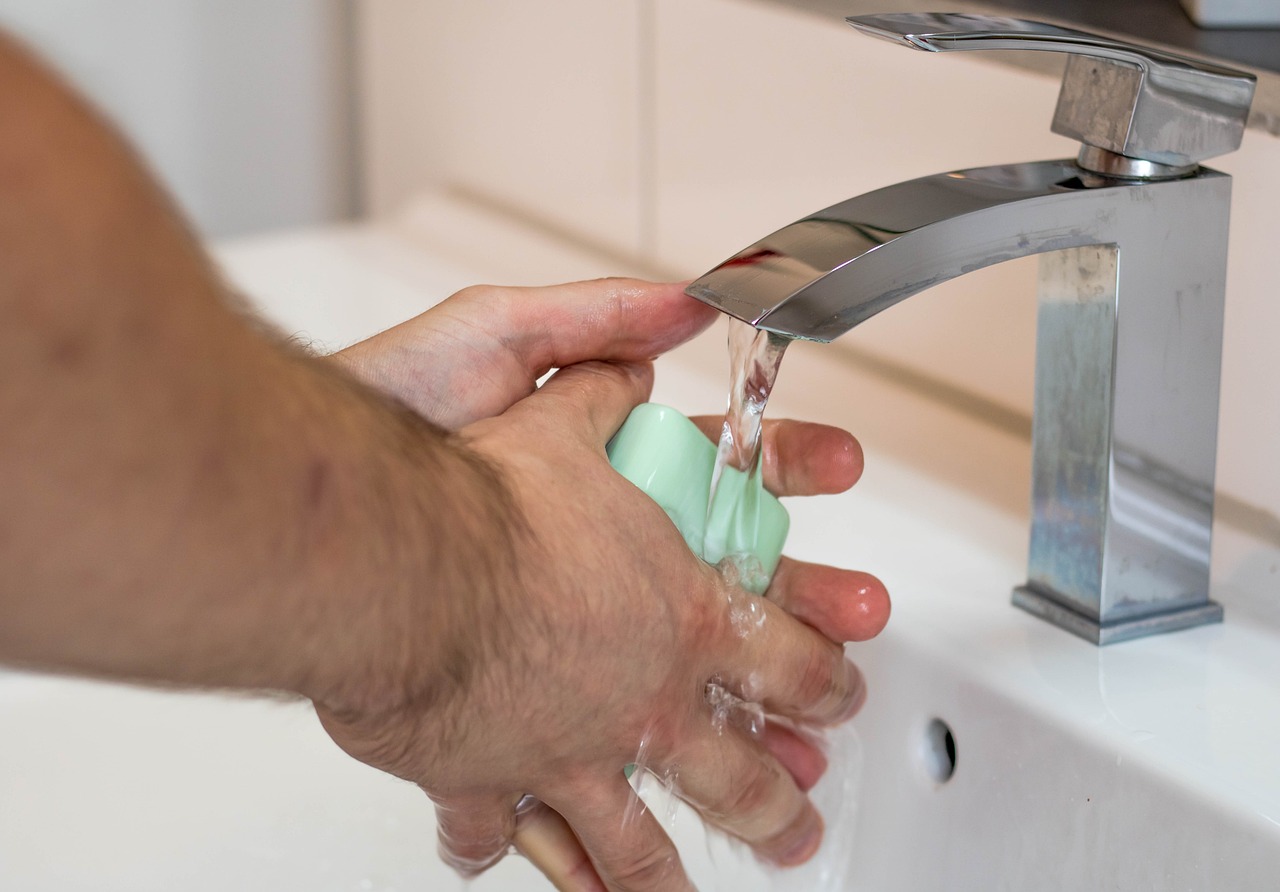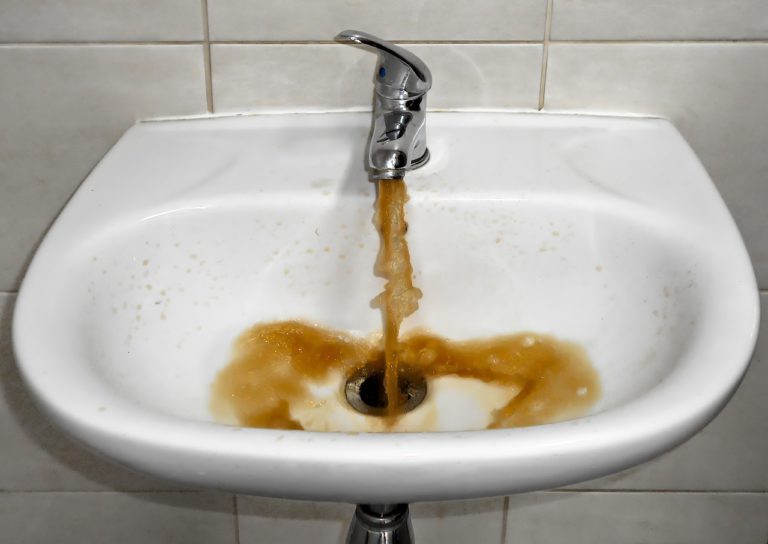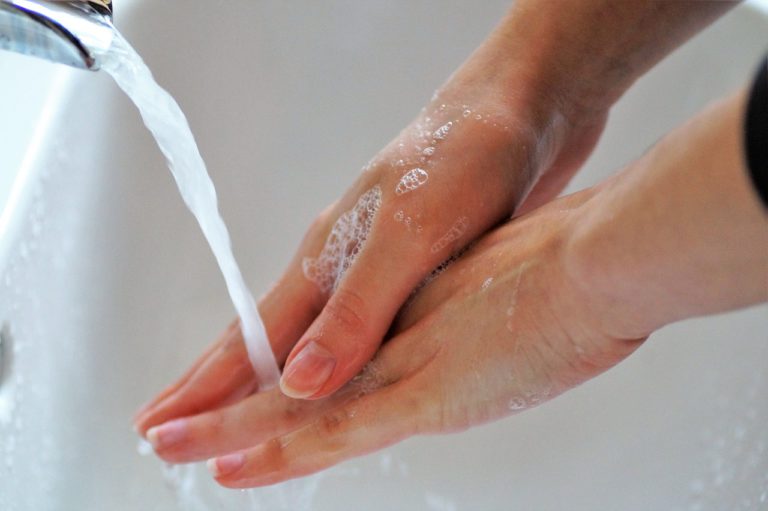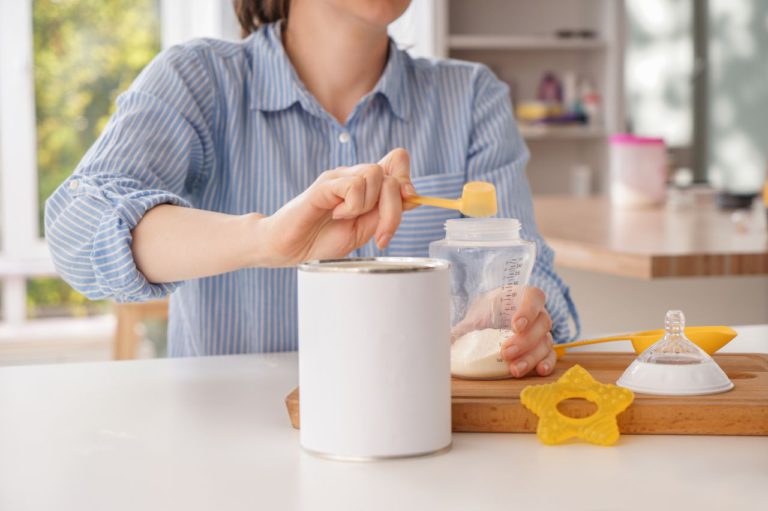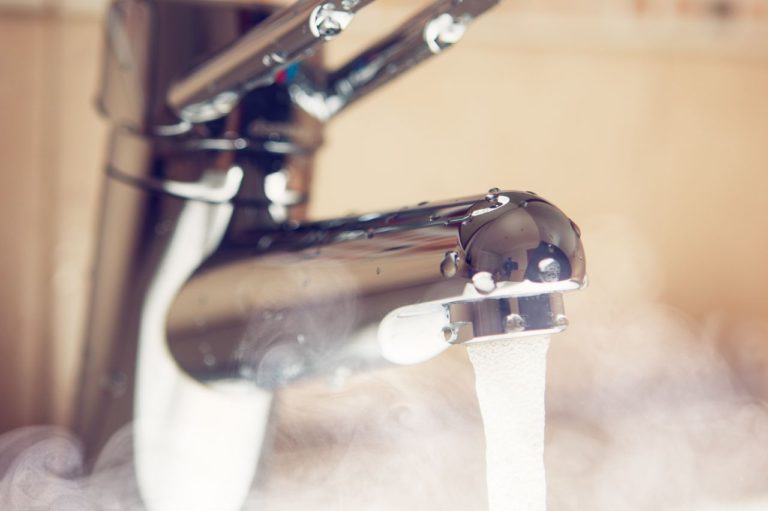Understanding the Difference Between Hard and Soft Water
Have you ever noticed that your soap just doesn’t lather up quite like it should, or maybe your skin feels dry even after a shower? The answer could lie in the type of water running through your taps. Understanding the difference between hard and soft water isn’t just about scientific curiosity—it’s about improving your daily life. This guide will help you navigate through what makes water “hard” or “soft,” and why it matters to you.
“Water is the driving force of all nature.” – Leonardo da Vinci
Before diving into the technical details, let’s start with a simple comparison. Soft water and hard water have distinct characteristics that affect everything from your household chores to how your skin feels. Curious to know more? Let’s make it easy for you to understand.
Defining Soft Water: A Simple Explanation
Soft water is essentially water that has been treated to remove minerals like calcium and magnesium, which are typically abundant in hard water. During the softening process, these minerals are exchanged for sodium ions, using water softeners. This transformation reduces the mineral content and alters the water’s characteristics significantly.
One of the biggest benefits of soft water is its effectiveness in household chores. For instance, you’ll find that soaps and detergents lather much more easily, resulting in cleaner clothes and dishes. Additionally, it can reduce the buildup of scale in pipes and appliances, thereby extending their lifespan.
When it comes to personal care, soft water has some clear advantages. It can make your skin feel softer and your hair more manageable since there’s less mineral residue left behind. This is particularly beneficial if you have sensitive skin or conditions like eczema.
However, it’s important to note that while soft water is excellent for most household uses, it should still go through sediment and carbon filters before being used for drinking. This ensures the water is completely free of any residual contaminants and safe for consumption. If you’re considering installing a water softener, it may be wise to consult an expert to determine the specifications based on your water’s initial hardness and your household’s volume demand.
Soft water can reduce soap usage by up to 50%
Defining Hard Water: A Simple Explanation
Hard water is essentially water that contains a high concentration of minerals, particularly calcium and magnesium. These minerals are picked up as the water percolates through deposits of limestone, chalk, or gypsum. When the concentration of these minerals exceeds 60 mg/L, the water is typically classified as hard.
You might have noticed some common signs of hard water around your home. For instance, it can leave white, crusty deposits on faucets, showerheads, and dishware. These deposits, known as limescale, form when the minerals in hard water react with soap, creating insoluble compounds that stick to surfaces. This interaction also leads to the formation of soap scum, which can make cleaning chores more cumbersome.
The effects of hard water are not limited to your home’s appearance. Over time, these mineral deposits can accumulate in plumbing systems and water-using appliances such as dishwashers, washing machines, and water heaters. This buildup can reduce efficiency, leading to higher energy bills and potentially costly repairs or replacements. Additionally, hard water can make your clothes feel rougher and less soft after washing, and it can even impact the texture of your hair and skin, leaving them feeling dry and less smooth.
It’s important to note that while hard water isn’t harmful to your health, it can pose challenges in certain situations. For example, swimming pools with high mineral content require more frequent maintenance to keep the water clear and prevent buildup on pool surfaces and equipment.
The good news is there are solutions available if you’re dealing with the inconveniences of hard water. Water softeners are commonly used to reduce the concentration of calcium and magnesium, effectively converting hard water into soft water. These systems use a process called ion exchange, where hard minerals are swapped with softer minerals like sodium, making your water more manageable and user-friendly in everyday life.
85% of US homes have hard water
The Taste Test: Hard vs. Soft Water
One of the most noticeable differences between hard and soft water lies in their taste. Hard water, which contains higher levels of dissolved minerals like calcium and magnesium, often has a distinct, sometimes metallic flavor. For many, this mineral-rich quality adds a certain depth to the taste, making it feel more “natural” or “earthy.” However, others might find it to have an unpleasant, sometimes salty aftertaste.
On the other hand, soft water—free from these dissolved minerals—tends to have a smoother, almost silky taste. This is because water softeners remove calcium and magnesium ions, replacing them with sodium or potassium ions, which impart a more neutral flavor. Some people find soft water more palatable and refreshing, particularly because it leaves less of an aftertaste on the tongue.
It’s important to note that taste preferences are highly subjective. What one person perceives as a fresh and clean taste in soft water, another may consider flat or bland. Conversely, the more robust flavor of hard water can be appealing to some, while others may find it off-putting.
Environmental Impact of Hard and Soft Water
When it comes to the environmental impact of water hardness, several important factors come into play. Hard water, which is rich in calcium and magnesium, often leads to scale buildup in plumbing and appliances. This buildup can reduce the efficiency of household appliances, leading to increased energy consumption. For example, water heaters may need to work harder, consuming more electricity or gas to heat water effectively.
Additionally, hard water can contribute to higher amounts of soap and detergent usage. Because minerals in hard water react with soap to form insoluble compounds, you might find yourself needing to use more product to achieve the desired cleaning effect. This not only means increased costs for households but also leads to larger quantities of chemicals being released into our water systems. Over time, these chemicals can build up in our environment, affecting aquatic life and water quality.
On the other hand, soft water has its own set of environmental considerations. The process of water softening typically involves exchanging calcium and magnesium ions with sodium ions. This can result in increased levels of sodium in softened water. Excessive sodium levels can be problematic for plants and soil health if used in irrigation. Furthermore, the discharge of saline wastewater from water softeners into septic systems or waterways can disrupt local ecosystems.
Another aspect to consider is the effect of water hardness on industry and infrastructure. Industrial facilities using hard water may face higher maintenance costs and energy usage, whereas softer water can help extend the life of equipment and reduce operational expenses. However, the implementation of softening systems must be managed carefully to mitigate any potential environmental side effects.
Water Softening: Methods and Benefits
Water softening involves different methods, each tailored to specific needs, enhancing both convenience and efficiency. The primary technique used in water softening is ion exchange. This process involves passing hard water through a bed of resin beads saturated with sodium ions. As the water flows, calcium and magnesium ions, responsible for water hardness, are exchanged for these sodium ions, effectively softening the water.
Among the various systems, three primary regeneration methods are employed: timer, metered, and demand-initiated regeneration (DIR). Timer-based systems regenerate at preset times regardless of water usage, while metered systems track water consumption and regenerate after a certain volume has been used. However, the most efficient method is DIR, which initiates regeneration based on actual water demand, ensuring optimal use of resources and reducing waste.
The benefits of softened water extend beyond immediate convenience. Softened water enhances the effectiveness and longevity of household appliances, such as washing machines and dishwashers, by preventing scale buildup. This not only results in lower energy consumption but also reduces repair costs. Additionally, softened water improves the texture and appearance of laundry, making clothes feel softer and look brighter.
Moreover, softened water can play a crucial role in safeguarding the longevity and performance of more advanced filtration systems, such as Reverse Osmosis (RO) units. Pre-treating water with a softener before it enters the RO system helps in extending the lifespan of the RO membrane and improves its efficiency in purifying drinking water. This pre-treatment step ensures that your water purification process is as effective and economical as possible.
How to Test Your Water Hardness
Understanding whether your water is hard or soft is crucial for both household maintenance and personal care. Fortunately, testing your water hardness is an easy and straightforward process.
To start, you can use a water hardness test kit. These kits are readily available and simple to use. One popular kit allows you to test the hardness of water from multiple sources—be it your home faucets, well water, or even your aquarium. Simply follow the instructions provided with the test kit for accurate results.
Here’s a quick guide to using a typical water hardness test kit:
- Collect a water sample from the source you wish to test.
- Fill the provided container with the sample water to the indicated level.
- Dip the test strip into the water sample and hold it there for the time specified in the instructions, usually a few seconds.
- Remove the test strip and wait for the colors to develop.
- Compare the resulting color on the test strip to the color chart provided with your test kit to determine the hardness level of your water.
The results are usually expressed in parts per million (ppm) or milligrams per liter (mg/L) of dissolved calcium and magnesium. Here’s a quick breakdown:
- 0-60 mg/L: Soft water
- 61-120 mg/L: Moderately hard water
- 121-180 mg/L: Hard water
- 180+ mg/L: Very hard water
Testing your water hardness not only helps you understand the quality of your water but also assists in determining if you need a water softener. Regular testing is recommended, especially if you notice changes in your water’s taste, soap lathering ability, or the condition of your plumbing and appliances.
Hard water contributes to 48% of all water heater failures
Conclusion
The choice between hard and soft water boils down to your personal needs and preferences. While soft water keeps your pipes running smoothly and appliances free from pesky scale build-up, hard water might just give your tea that unique taste you enjoy. However, considering health aspects such as potential impacts on cardiovascular health, urinary stone formation, and skin conditions, it’s essential to evaluate the water quality in your area.
What steps can you take next? Begin by testing your water hardness using a simple test kit. If you find your water to be on the hard side, consider exploring water softening options. Whether it’s through salt-based systems, reverse osmosis, or other methods, understanding the pros and cons of each will help you make an informed decision.
Remember, there’s no one-size-fits-all answer. Assess your priorities regarding taste, appliance longevity, health considerations, and environmental impact to determine the best course of action for your household. Armed with the knowledge from this guide, you’re well on your way to making that decision confidently.
Frequently Asked Questions:

How can I tell if my water is hard or soft?
One of the easiest ways to determine your water’s hardness is by observing its effects in your everyday life. Hard water often leaves noticeable residues, such as soap scum or mineral deposits on faucets, fixtures, and glassware. It can also make it more challenging to lather soap or shampoo effectively, leaving your skin feeling dry and your hair appearing dull.
However, for more precise results, consider using a water hardness test kit. These kits are straightforward to use and provide reliable measurements of the presence of calcium, magnesium, and other minerals in your water. Simply follow the instructions within the kit to test water samples from your faucets, taps, or other sources around your home.
Alternatively, you can also refer to local water quality reports provided by your city or water supplier. Many municipalities regularly publish data on water hardness levels in their area, offering valuable insights into what you’re dealing with and any steps you might need to take.
If you’re experiencing significant issues with hard water, consulting with a water expert can be a wise choice. They can help you determine your water’s hardness level and recommend effective water softening solutions tailored to your specific needs.
How does soft water impact skin and hair?
Soft water can be a game-changer for your skin and hair. When you shower or bathe in soft water, you may notice that your skin feels smoother and your hair more manageable. The absence of calcium and magnesium ions means that soap and shampoo lather more easily and rinse out more completely. This reduces residue build-up, which can often leave skin and hair feeling dry and heavy.
In addition, those with sensitive skin or conditions like eczema might find some relief in using soft water. The reduced mineral content can help minimize irritation and provide a gentler cleansing experience. Soft water can also contribute to better moisturization, as your skin is less likely to develop the dry, itchy feeling often associated with hard water.
For hair, soft water ensures that hair products perform at their best. You’ll likely use less shampoo and conditioner, and notice that your hair feels cleaner and softer. Hair colors and treatments can also last longer without the interference of mineral deposits. Overall, soft water leaves your hair shiny and full of life.
How does hard water affect soap and detergent usage?
Hard water can significantly impact your soap and detergent usage. When you use soap in hard water, the minerals such as calcium and magnesium react with the soap, forming a sticky substance often referred to as soap curd. This curd doesn’t dissolve easily in water and can make cleaning tasks much more challenging. Have you ever noticed a filmy residue left on your skin or dishes after washing? That’s due to this curd, which can stick to surfaces, making them look dingy and feel sticky.
Additionally, hard water reduces the effectiveness of detergents. The minerals in hard water interfere with the cleaning agents in your detergent, requiring you to use more product to achieve the same level of cleanliness. This not only increases your detergent costs but can also lead to problems like stiff, grayed, and sour-smelling clothes after laundry. Since the detergent is less effective, your clothes and linens might not look as bright, and stains can be harder to remove.
The increased soap and detergent usage due to hard water isn’t just a household inconvenience; it can have environmental impacts as well. Using more cleaning products means more chemicals are being washed down the drain, potentially affecting local water supplies and ecosystems. If you’re noticing these issues and are tired of the extra effort and costs, it might be worth considering water softening methods to mitigate the effects of hard water.
What are the costs associated with treating hard water?
The costs associated with treating hard water can vary significantly based on the method used. Let’s break it down:
- Water Softening Systems: These are the most common solutions for hard water. The initial cost of a basic ion-exchange water softener ranges from $400 to $2,500, depending on the size and features. Installation might add another $300 to $600. Additionally, you’ll need to purchase salt or potassium chloride for the regeneration process, costing around $5 to $10 per bag every month or two.
- Maintenance and Servicing: Regular maintenance of your water softening system ensures its efficiency. Professional servicing could cost around $100 to $300 per year. Also, factor in possible repairs which can range from minor tweaks costing $50 to major fixes hitting several hundred dollars.
- Alternative Treatments: For those seeking salt-free options, template-assisted crystallization (TAC) systems cost between $700 and $2,000. These systems require less maintenance but might still involve an annual checkup costing $100 to $150.
- Point-of-Use Filters: These filters soften water just at specific fixtures. They are less expensive upfront, typically costing between $100 and $300 each. However, you’ll need to replace the cartridges every few months, costing an additional $30 to $50 each time.
Not addressing hard water can also carry hidden costs. Increased wear and tear on appliances, higher energy bills due to decreased efficiency, more frequent plumbing repairs, and even the need for more cleaning supplies due to soap scum and scale build-up can add up significantly over time.
All in all, investing in a suitable water treatment system not only brings comfort but is likely to save you money in the long run. If you’re uncertain about which system to choose, consulting with a water treatment expert can help you understand the costs and benefits specific to your situation.
Can hard water cause health issues?
When it comes to health concerns, hard water typically doesn’t pose serious health risks. In fact, the minerals found in hard water, such as calcium and magnesium, can contribute positively to your dietary intake. These essential minerals are valuable for bone health and overall bodily functions.
However, some people might be sensitive to the effects of hard water on their skin. Bathing in hard water can leave a film on your skin, which can lead to dryness and irritation. Additionally, if you have certain skin conditions like eczema, hard water might exacerbate symptoms, making your skin feel worse.
There have been studies exploring the potential link between water hardness and cardiovascular disease, but the results are inconclusive. Some research suggests that there could be a slight protective effect due to the mineral content, while other studies show no significant correlation.
One aspect to be aware of is that extremely hard water, if untreated, can form chemical precipitates and soap scum, which may have minor indirect health implications. For instance, soap scum left on surfaces might harbor bacteria if not cleaned properly, posing potential hygiene concerns.
In summary, while hard water isn’t known for causing major health issues, it can have minor effects, especially for those with sensitive skin. Generally, the minerals it provides can be beneficial, but you should monitor how your body reacts to ensure it aligns with your personal health needs.

